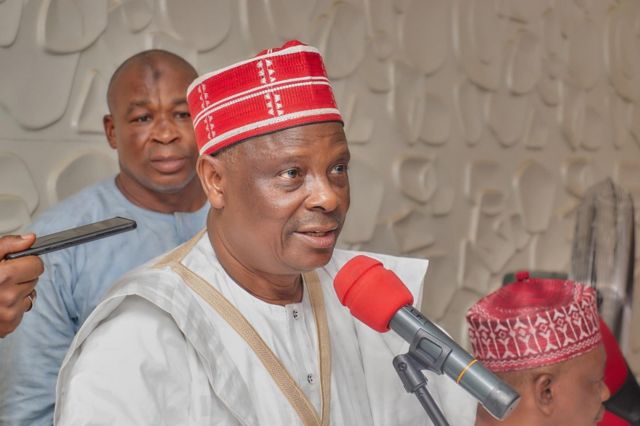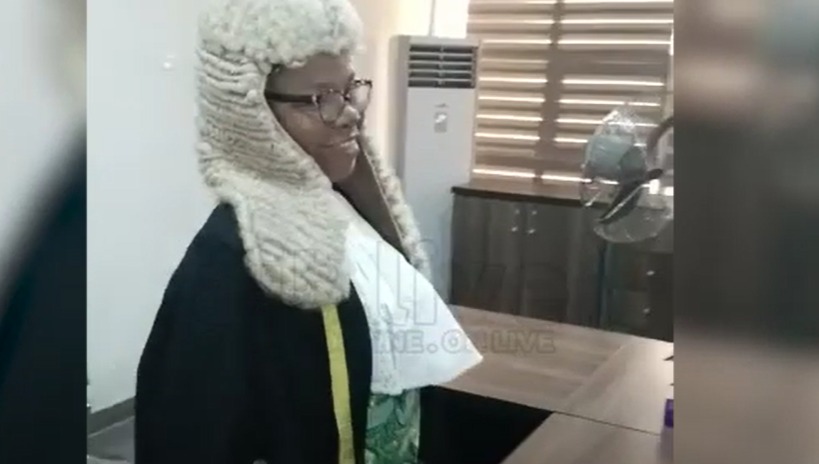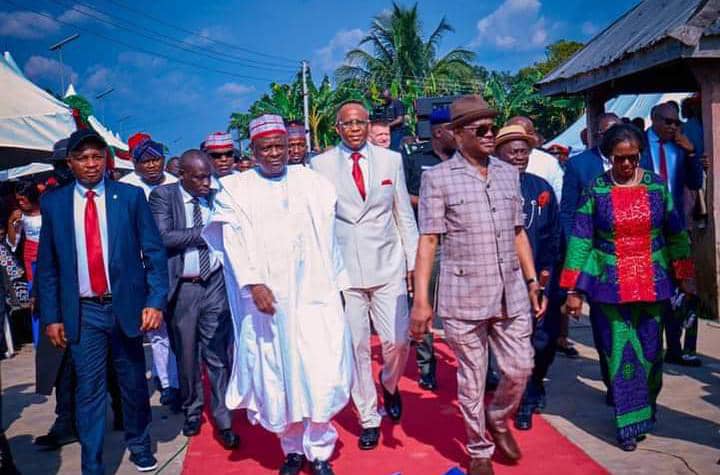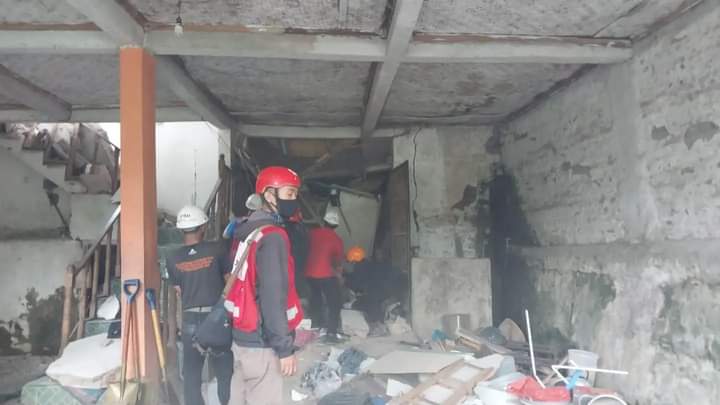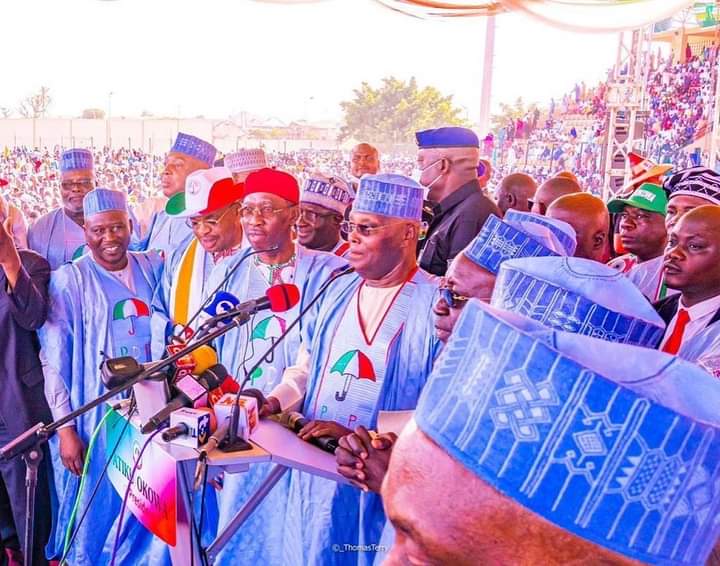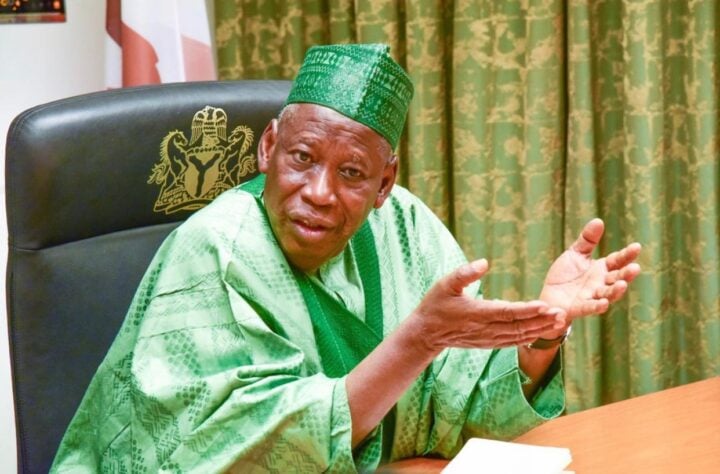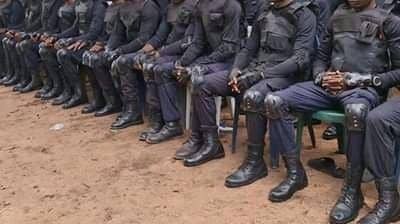File photo of Rabiu Kwankwaso
Rabiu Kwankwaso, former governor of Kano state and presidential flagbearer of the New Nigeria Peoples Party (NNPP), has claimed that during his eight years tenure, his administration never borrowed.
Kwankwaso made this claim on Saturday, November 19 at the presidential town hall series titled The Candidates, hosted by Kadaria Ahmed, a journalist and media entrepreneur.
“Rabiu Kwankwaso did not borrow anyone Naira from any bank, any individual or from anybody, either in this country or abroad,” he said.
“I am one governor who has never borrowed, and in fact, I hate anything borrowing. Not only that, in 1999, when I was elected as governor, I inherited a lot of debt which I paid in four years.
Advertisement
“I lost the election in 2003. Eight years after, I came back and inherited another debt, and in four years I paid. I left Kano without owing one naira.”
He equally made the same claim on Sunday, November 13 when he attended the presidential town hall meeting organised by Channels Television.
In response to how he would finance the nation’s budget without incurring more debt, again Kwankwaso said as governor of Kano, his government never borrowed.
Advertisement
“In Kano, we never had the issue of an unbalanced budget because we keep our eyes on whatever is coming and we look at what is necessary, or important to be done. I am not one of those in a hurry to borrow money to do anything,” he said.
“There is so much money in this country. Anybody who says there is no money in this country either doesn’t know or wants to be mischievous. There is enough money to take care of each and every one of us in this country.
“We have done it before in Kano from 1999 to 2003. We met a lot of debt and we paid them off. After eight years, when I went back as governor, I met debts of hundreds of millions of US dollars and we settled them before I left in 2015.
“I am talking of borrowing money either from banks or individuals. We never borrowed for the eight years while I was governor.”
Advertisement
In 2021, in an interview with Arise TV, Kwankwaso accused Abdullahi Ganduje of plunging Kano state into huge debt. Once again, he claimed that during the eight years he spent in office as governor, he never borrowed one naira.
How true is the claim that Kano state never borrowed while Kwankwaso was governor?
Rabiu Kwankwaso was the governor of Kano state between 1999 and 2003.
He lost his re-election bid in 2003. Thereafter he was appointed as the minister of defence, from 2003- 2007.
Advertisement
In 2011, he was re-elected as governor of Kano state.
The Debt Management Office (DMO) has no available data on its website to back the claim that Kwankwaso either borrowed or not during his first tenure which lasted between 1999 and 2003.
Advertisement
External debt reduced by 9.89 per cent between 2011 & 2015
According to data from the DMO, in 2011, Kano had an external debt of $63.94 million when Kwankwaso assumed office for his second tenure.
Advertisement
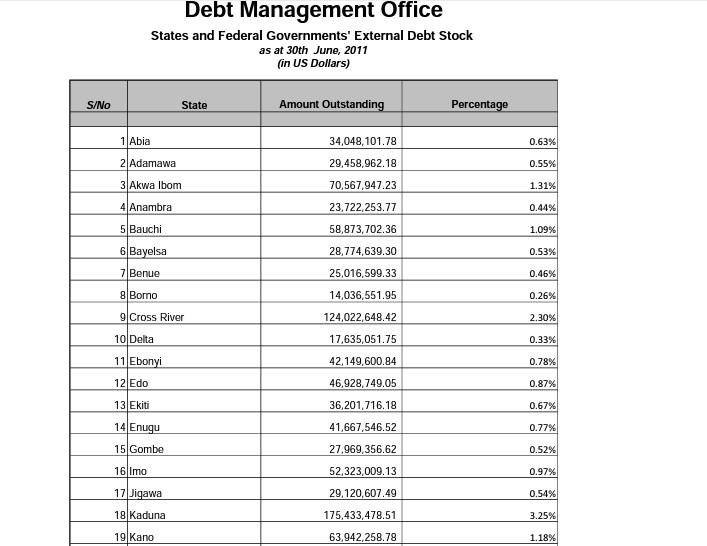
Advertisement
At the time when he left office in 2015, the debt figure had reduced to $57.61 million, a reduction of 9.89 per cent.

Domestic debt increased by over 1000 per cent
Official data from DMO revealed that between 2011 and 2015, during Kwankwaso’s second term in office, domestic debt in Kano increased by 1008 per cent

In the year 2011 when he was re-elected, there was an existing domestic debt of N5.87 billion. In 2015, when he left office, the state debt had increased to N65 billion, a 1008 per cent increase.
Clearly, an increase in domestic debt might necessarily not be a result of more borrowing when factors like increase in interest rate and foreign exchange differential are considered.
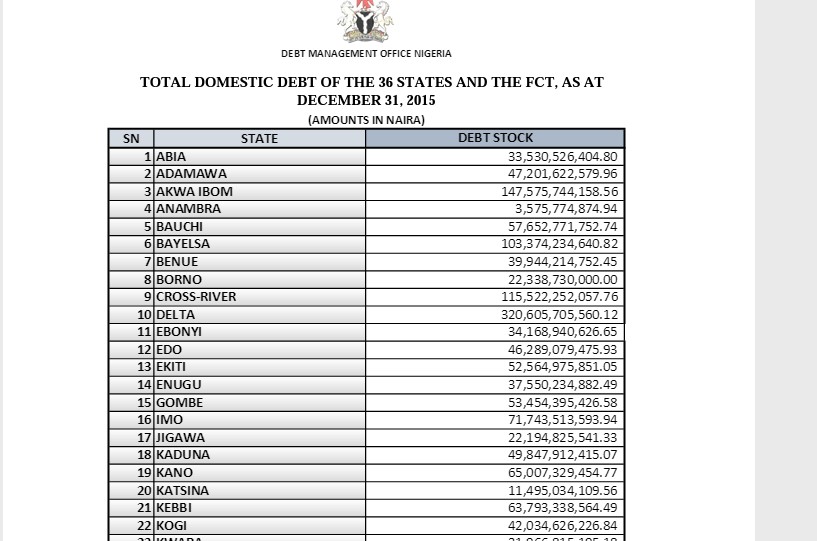
However, checks by TheCable revealed that foreign exchange differential was not responsible for the humongous increase in debt. Also, an increase in interest rate in 4 years couldn’t have led to a 1008 per cent increase in the debt profile of the state.
In fact, the average exchange rate was N155 to $1 in 2011, and N197 to $1 in 2015
Abdullahi Ganduje admitted that the state borrowed
Before they fell out, Ganduje, Kwankwaso’s deputy governor, who later succeeded him as governor in 2015, said it was normal for his predecessor to have left the state in debt of over 300 billion naira – a figure far higher than DMO’s estimate.
“I don’t think Kwankwaso has committed any crime for living behind these huge liabilities because whatever happened was planned, coordinated and executed with me,” Ganduje said.
He also condemned those who criticised Kwankwaso for the debt the state had accumulated, he further rationalised the borrowing, owing to the sudden drop in oil revenue at that time.
He was quoted to have encouraged residents of Kano to applaud his predecessor for transforming the state in spite of the debt burden.
“I knew everything, the anticipations were high and we thought that things, according to oil money, will continue to be smooth. Suddenly, there was that disgracing drop,” Ganduje was quoted to have said in a 2015 report.
“In any case, living behind liabilities from one government to another is a normal thing. Those who are today shouting will do the same or even worst by the time they assumed office. My governor Kwankwaso deserved to be highly praised for embarking upon the genuine transformational job in Kano state.”
According to another news report, in 2015, local contractors in the state asked anti-corruption agencies to probe kwankwaso for an alleged debt of N200 billion and for crippling indigenous contractors before running to the senate.
In 2015, Auduwa Maitangaran, the state chairman of Nigeria’s chamber of indigenous contractors said over 50 contractors in Kano were sent to prison and more than 100 members were on admission in hospitals due to the nonpayment of their monies by the Kwankwaso administration.
“We have lost over 40 members who died as a result of illnesses they developed following the delay in releasing their funds by the former governor,” he said.
The contractor said “Kwankwaso only paid 30 per cent of the entire projects he executed in four years”, leaving behind 70 per cent unpaid, adding that 50 per cent of indigenous contractors were not paid their monies as at the end of that administration.
“Alhaji Idi Bilya our member died of heart attack due to nonpayment of his money and another member Alhaji Ibrahim Carpenter who has over N50m with Kano state government cannot produce N5,000 now. This is wickedness,” the chairman of the contractors was quoted in a 2015 report.
Muhammad Garba, a former commissioner of information, also accused Kwankwaso of borrowing N4.1bn pensioners’ funds to build housing estates.
Daily Trust quoted Garba to have said: “Kwankwaso borrowed the sum of N4.1bn pensioners’ funds to build Bandirawo and Amana Housing estates with the aim that pensioners could benefit from the houses.
“But when he realized that the houses are too expensive for them to occupy, he slashed their prices by 50 per cent and even at that, the pensioners could not afford to buy the houses.”
Verdict
Kwankwaso’s claim that his administration never borrowed as governor of Kano is false. Adequate data shows that the state’s domestic debt increased by a whopping 1008 per cent. Also, his predecessor and contractors in the state admitted to the huge increase in domestic debt as a result of borrowing.

